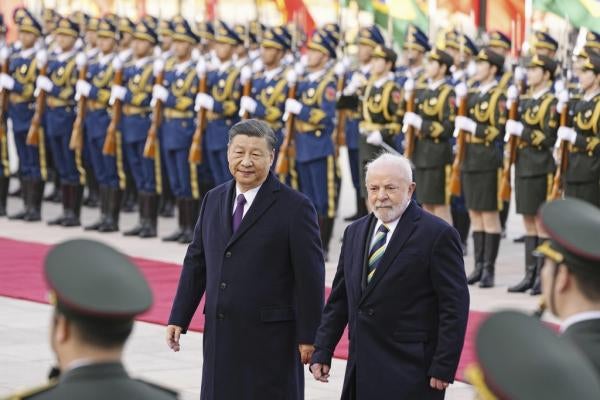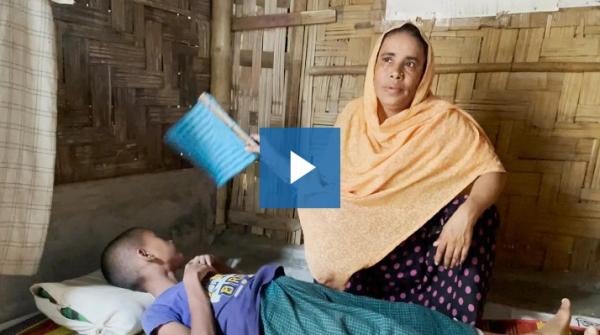The Brazilian constitution obligates the government to defend human rights as a pillar of the country’s foreign policy.
So, when President Lula visited China a few days ago, he of course brought up Beijing’s appalling human rights record, right?
Er… no.
Media reports of Lula’s meetings with his Chinese counterpart Xi Jinping show a strong focus on trade deals. They signed at least 15 bilateral trade agreements. As for agreements on respecting human rights: zero.
Along with his constitutional obligation, consider too that this is the same Lula who has openly articulated a politics of social justice and human rights. As we’ve highlighted here in this newsletter before, when he came to office a few months ago, Lula promised to reverse Brazil’s human rights slide, away from the authoritarian policies of his predecessor, Jair Bolsonaro.
Apparently, that doesn’t apply for the Lula Administration’s dealings with China. I guess authoritarianism and abuses are just fine when they’re happening to other people?
China’s abuses are not something Lula – or any other world leader – should ignore. Under Xi’s leadership since 2013, the Chinese government has deepened repression across China.
In Xinjiang, authorities have unlawfully imprisoned some one million Uyghurs in “political education camps” and prisons, where some are tortured. They have separated children from their families, built dystopian mass surveillance systems, and sought to erase Turkic Muslim religion and culture. It all amounts to crimes against humanity.
Beijing is also hollowing out Tibetans’ language, culture, and religion, and has rapidly dismantled Hong Kong’s freedoms.
And throughout China, authorities are ratcheting up ideological and social control, imprisoning, harassing, and intimidating anyone who criticizes the administration. The Chinese government has long banned independent labor unions.
Now, to be clear, Brazil’s previous administration under Bolsonaro didn’t speak out against China’s human rights horrors either. It even abstained on a key vote concerning Xinjiang at the UN Human Rights Council in 2022, helping Beijing whitewash its abuses.
But Lula had seemed to promise something different, something perhaps more in line with the constitutional obligation to defend human rights in foreign policy.
Where was that spirit in Beijing last week?






